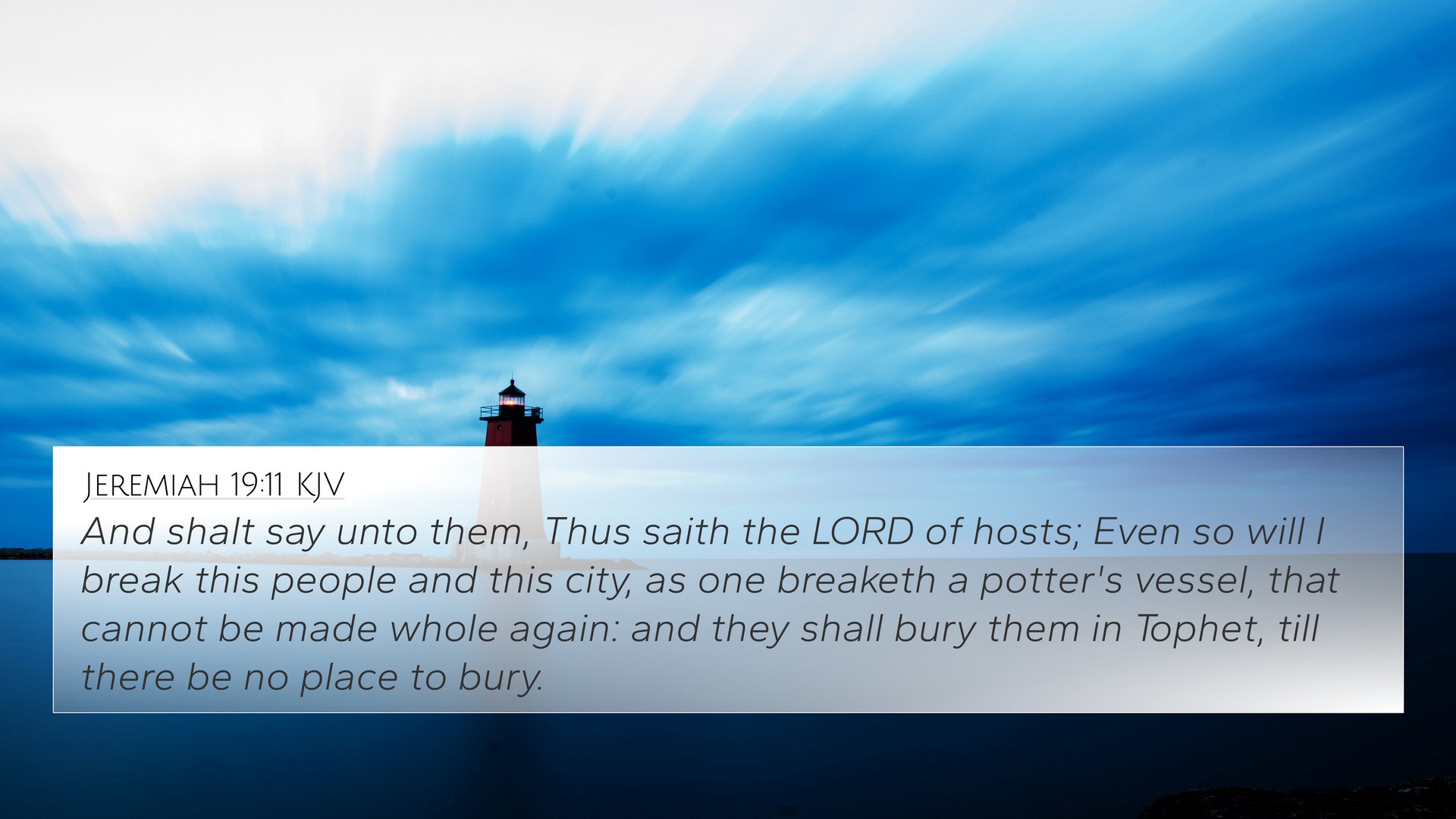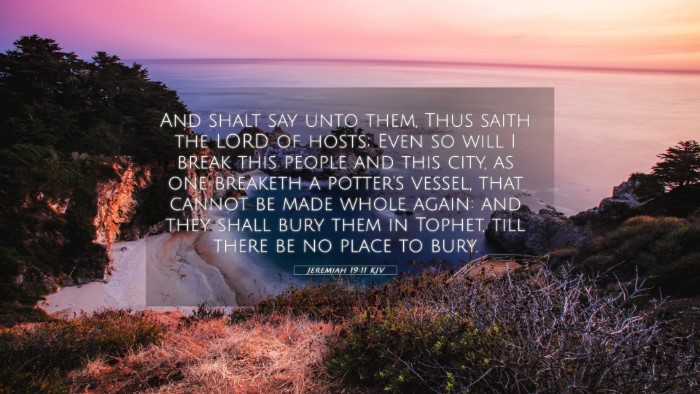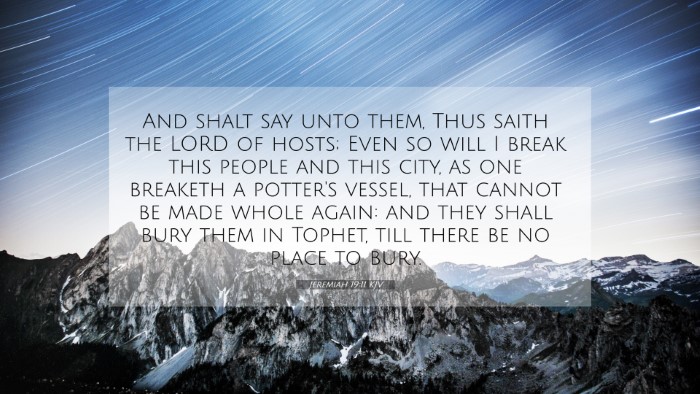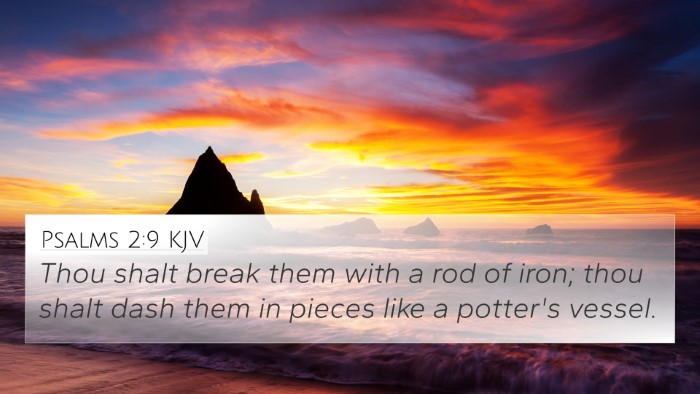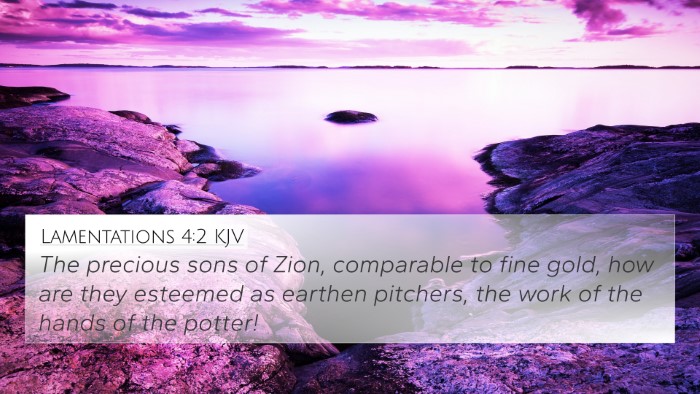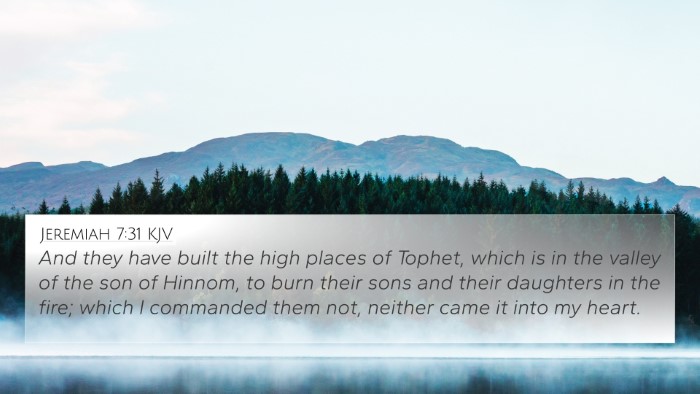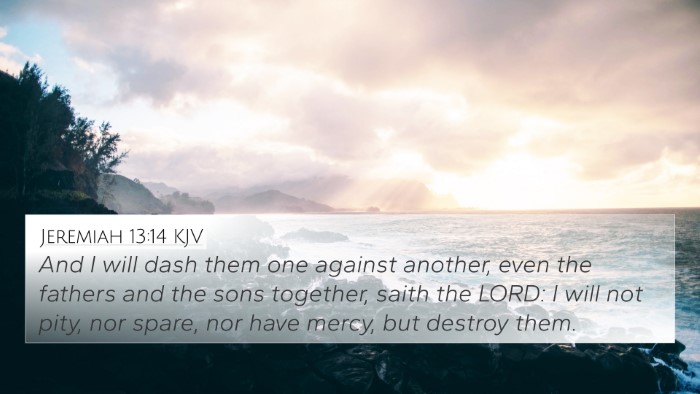Understanding Jeremiah 19:11
Bible Verse: Jeremiah 19:11 - "And say unto them, Thus saith the Lord of hosts; Even so will I break this people and this city, as one breaketh a potter's vessel, that cannot be made whole again: and they shall bury them in Tophet, till there be no place to bury."
Summary of Meaning
This verse is a powerful declaration from God through the prophet Jeremiah, emphasizing the irreversible destruction that will come upon Jerusalem and its inhabitants due to their unfaithfulness. God uses the metaphor of a broken pottery vessel to illustrate the complete and total ruin that they will face, indicating that it is beyond repair.
Insights from Public Domain Commentaries
Matthew Henry's Commentary
Matthew Henry highlights the severity of God’s message through Jeremiah, noting that the breaking of a potter's vessel symbolizes the total devastation of the people and their city. He explains that just as a broken pot cannot be mended, the fate of Jerusalem is sealed. Henry emphasizes the consequence of sin, suggesting that persistent rebellion against God leads to inevitable judgment. The reference to Tophet signifies a place of burial for the victims of God's wrath, indicating the gruesome reality of the coming judgment.
Albert Barnes' Notes
Albert Barnes elaborates on the significance of the potter's vessel analogy, pointing out the fragility and vulnerability of human life. Barnes notes that the destruction prophesied by Jeremiah serves as a warning of the seriousness of transgressing divine commandments. He also connects this imagery to the themes of divine sovereignty and righteousness, asserting that God's decisions are just and reflect His holiness. The mention of Tophet serves as a reminder of the fate awaiting those who turn away from God's ways.
Adam Clarke's Commentary
Adam Clarke provides a deep dive into the implications of God’s words. He points out that the "potter's vessel" metaphor conveys the idea of total loss and the inability to restore what has been shattered. Clarke also remarks on the historical context, relating the prophecy to actual events involving the impending destruction brought about by the Babylonian invasion. His analysis connects the grief and sorrow that comes with such loss while emphasizing God's justice in the face of profound disobedience.
Cross-References for Jeremiah 19:11
- Isaiah 64:8: “But now, O Lord, thou art our father; we are the clay, and thou our potter; and we all are the work of thy hand.”
- 2 Kings 25:9: “And he burnt the house of the Lord, and the king's house, and all the houses of Jerusalem; and every great man's house burnt he with fire.”
- Lamentations 2:9: “Her gates are sunk into the ground; he hath destroyed and broken her bars: her king and her princes are among the Gentiles: the law is no more; her prophets also find no vision from the Lord.”
- Ezekiel 24:6-7: “Wherefore thus saith the Lord God; Woe to the bloody city, to the pot whose scum is therein, and whose scum is not gone out of it!”
- Romans 9:21: “Hath not the potter power over the clay, of the same lump to make one vessel unto honour, and another unto dishonour?”
- Jeremiah 18:4: “And the vessel that he made of clay was marred in the hand of the potter: so he made it again another vessel, as seemed good to the potter to make it.”
- Isaiah 5:5: “And now go to; I will tell you what I will do to my vineyard: I will take away the hedge thereof, and it shall be eaten up; and break down the wall thereof, and it shall be trodden down.”
Thematic Connections
Jeremiah 19:11 resonates with several themes prevalent in the Bible:
- Judgment and Repentance: The call to repentance is often accompanied by promises of restoration; however, when ignored, judgment prevails.
- The Sovereignty of God: God, as the potter, shapes nations and individuals, directing history according to His divine purpose.
- The Fragility of Human Life: The imagery of the potter's vessel emphasizes how easily lives can be shattered without adherence to divine principles.
- God's Desire for Restoration: While judgment is severe, God's ultimate aim is restoration, illustrated by His continued calls to the Israelites through the prophets.
Bibliographical Insights
Understanding Jeremiah 19:11 can be enriched through various tools for Bible cross-referencing, including:
- Using a Bible concordance to identify similar themes and meanings across different texts.
- Employing a Bible cross-reference guide to draw parallels between prophetic literature and the New Testament.
- Engaging in cross-reference Bible study sessions for a comprehensive grasp of biblical themes.
- Exploring inter-Biblical dialogue by comparing prophetic messages with other biblical teachings.
Conclusion
Jeremiah 19:11 offers profound insight into the nature of God’s judgment and the consequences of disobedience. Through cross-referencing and thematic exploration, believers can gain a deeper understanding of how this verse fits within the broader narrative of the Bible. The linkage between this verse and others further enriches our study of scripture, underscoring the importance of discernment and repentance.
